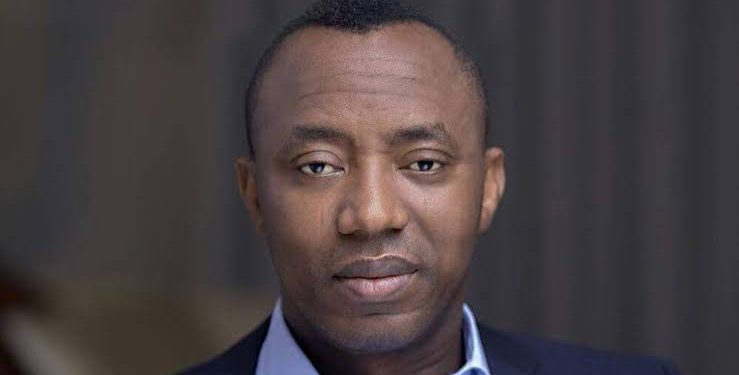The Federal High Court in Abuja has ordered six major financial institutions to disclose details of bank accounts linked to Omoyele Sowore, activist and publisher of Sahara Reporters.
According to a report by Vanguard on Tuesday, August 26, 2025, Justice Emeka Nwite granted the order following an ex parte motion filed by the Inspector-General of Police (IGP), represented by counsel Wisdom Madaki. The police are currently investigating Sowore for alleged terrorism financing, money laundering, and fraudulent financial activities.
Banks Directed to Comply
The ruling compels the following financial institutions to provide comprehensive account details:
United Bank for Africa (UBA)
Guarantee Trust Bank (GTB)
Zenith Bank
Opay Digital Services
Moniepoint
Kuda Microfinance Bank
The banks are expected to release mandate cards, certified statements, and records of all inflows and outflows from January 2024 to date.
ALSO READ: Nnamdi Kanu Petitions Trump, African Union, and World Leaders Over “Unlawful Detention”
Details of the Investigation
In the motion, marked FHC/ABJ/CS/1757/2025, Sowore and Sahara Reporters Media Foundation were listed as the first and second defendants, while the six financial institutions were named as the third to eighth defendants.
The IGP argued that there is credible intelligence suggesting that Sowore channels funds through these accounts with alleged support from foreign collaborators.
Supporting the application, Bassey Ibrahim, a police officer with the Force CID Legal Section, submitted a sworn affidavit confirming that intelligence reports had linked Sowore to suspicious financial dealings. He maintained that granting access to the account details was crucial for the ongoing investigation and would not prejudice either Sowore or the banks involved.
Court’s Decision
After reviewing the evidence, Justice Nwite ruled that the request had merit and approved the police application. He emphasized that denying investigators access to the records could obstruct efforts to verify the allegations.
Reports indicate that over 26 accounts associated with Sowore are under review, including those linked to Sahara Reporters Media Foundation and his political party, the African Action Congress (AAC).
What This Means
The court’s decision carries significant legal and political implications:
- Legal Accountability
If the investigations confirm money laundering or terrorism financing, Sowore could face criminal prosecution.
For the financial institutions, the order underscores the judiciary’s role in ensuring compliance with anti-financial crime laws.
- Political Ramifications
As a former presidential candidate and vocal critic of the Nigerian government, Sowore’s legal battles may further polarize public opinion.
Supporters may view the case as political persecution, while critics see it as a legitimate probe into financial misconduct.
- Media and Human Rights Concerns
Given Sowore’s role as publisher of Sahara Reporters, a platform known for exposing government corruption, the case raises questions about press freedom and whether the probe is linked to his journalistic work.
- National Security Context
The allegations highlight Nigeria’s broader struggle against terrorism financing and financial crimes, issues that remain critical to national and international security.
Wider Implications
This development once again places Omoyele Sowore under renewed scrutiny, intensifying debates around activism, governance, and financial transparency in Nigeria. The coming months are expected to reveal whether the investigation leads to formal charges or clears Sowore of the allegations.


